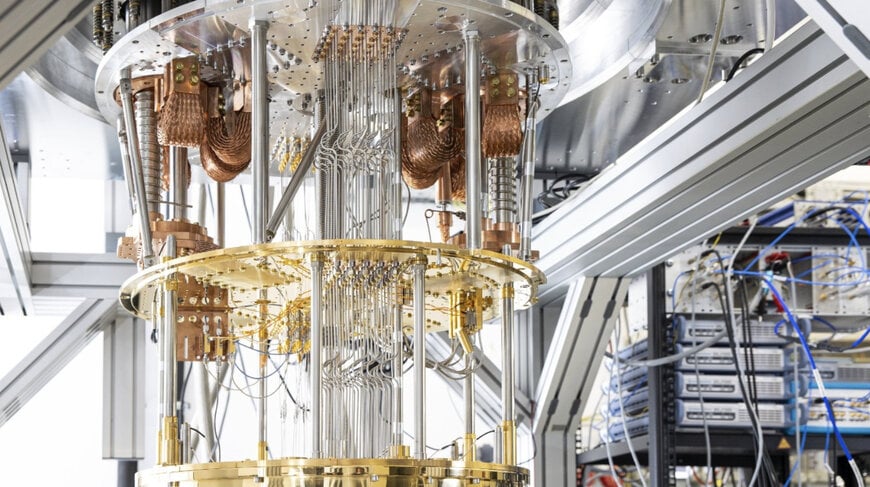www.industryemea.com
27
'25
Written on Modified on
QSolid Quantum Computer Now Accessible to External Users
Researchers at Forschungszentrum Jülich and QSolid integrated a quantum computer prototype into JUNIQ, marking key progress for Fraunhofer IPMS toward a trustworthy German quantum ecosystem.
www.fraunhofer.de

Just three and a half years after the project’s kick-off, the prototype of a system-integrated quantum computer is being made available to external users for an initial two-week test phase starting on 17 November 2025. “It is an outstanding achievement by our team to have succeeded in building a complete prototype from scratch. From the chip upwards, it consists of hardware developed at Forschungszentrum Jülich. In addition, another prototype will be launched in January. The feedback from our first users will now be crucial to further optimise the quantum computer,” explains Prof. Dr. Frank Wilhelm-Mauch, coordinator of QSolid.
The computer, currently operating with a capacity of 10-qubits, will be accessible via the JuDoor cloud platform. The term qubit, short for quantum bit, refers to the fundamental unit of quantum information.
Close Partner Cooperation Leads to Successful System Integration
The development and integration of the software stack, a collection of functional software components, was achieved through close collaboration between research institutions and industrial partners. The companies Qruise and Eviden, key providers in the fields of quantum firmware and high-performance computing, supplied the necessary software components, while Forschungszentrum Jülich carried out the professional system integration. “On the path from a physics experiment to a full prototype, we must always keep an eye on the compatibility and interplay of the components. This is often underestimated in research,” says Dr. Paolo Bianco, head of the system engineering team at Forschungszentrum Jülich.
Fraunhofer IPMS is playing a key role in developing future generations of quantum processors as part of the QSolid project. This includes, firstly, the cryogenic characterisation of CMOS circuits in collaboration with GlobalFoundries. Secondly, as part of the Fraunhofer Center for Advanced CMOS and Heterointegration Saxony (CEASAX), the institute is collaborating with Fraunhofer IZM-ASSID on advanced cryogenic packaging structures, which compactly connect the quantum and control chips via an interposer. This work is crucial for efficiently transmitting signals in scalable quantum processors with larger numbers of qubits and for laying the foundation for the next generation of quantum computers.
The industrial partners ParTec, ParityQC, and HQS Quantum Simulations will be the first users outside Jülich’s infrastructure to participate in the two-week test run. This pilot phase will soon be followed by another one using updated software. Hardware improvements are also planned: the team led by Prof. Dr. Rami Barends (Forschungszentrum Jülich) will soon replace the current quantum chip with another even more powerful version.
A Strong Signal for the ‘High-Tech Agenda Germany’
Just two weeks after the launch event of the ‘High-Tech Agenda Germany’, initiated by the Federal Ministry for Research, Technology and Space (BMFTR), QSolid’s success marks a significant momentum. The research project, with a total budget of €76.3 million, demonstrates that German scientists already contribute to shaping European cutting-edge research in a key technology area of the agenda. “The system integration serves as a blueprint for developing a German quantum computer. From a technical perspective, it represents an ideal starting point for the High-Tech Agenda Germany of the Federal Ministry for Research, Technology and Space,” states Wilhelm-Mauch.
www.ipms.fraunhofer.com

